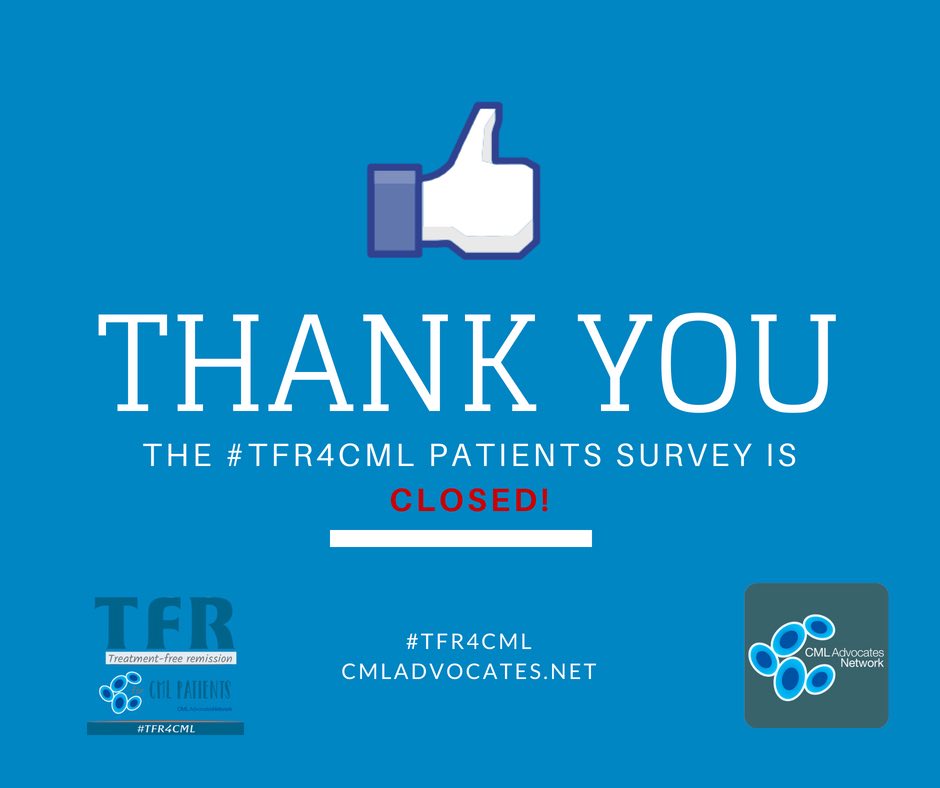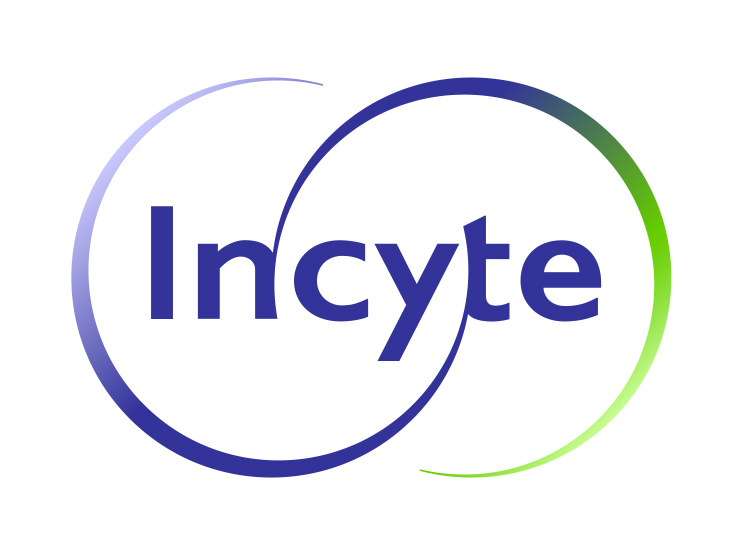TFR 4 CML patients survey
The TFR for CML patients survey is now closed!
The CML Advocates Network launched the online global survey “TFR 4 CML Patients”, available in eleven languages (English, Spanish, German, Italian, French, Finnish, Hebrew, Arabic, Danish, Japanese and Russian) to measure the viewpoints, needs and experiences of CML patients that are considering or have already started Treatment Free Remission (TFR). From March to July 2018, the survey has collected the feedback of more than one thousand CML patients worldwide.
The findings of the survey will help us to better understand what the concerns, challenges and motivations are during the decision phase, the first probation phase after stopping, and when attempting TFR has either worked or failed.
Now, we start working on the analysis of the results of the treatment-free remission survey to provide the CML global community with a powerful evidence-based patient advocacy tool. Stay tuned for more information about #TFR4CML!
Thank you so much for being a part of the TFR 4 CML patients survey!
We are really proud of the CML patient’s community and its engagement and we want to thank you so much once again for your support and collaboration in this important patient-driven study.
The survey was open for completion for patients of the global CML community until 31st July 2018, and the results will be professionally analysed in order to obtain patient-based evidence about TFR that will support both patient and doctors.

With your support and collaboration, we will better understand the real needs, concerns and challenges of patients that want to achieve a treatment-free remission. If you want us to keep you informed about TFR, our survey and any other activity of the CML Advocates Network, please, subscribe to our Newsletter HERE.
About the TFR 4 CML patients project
The content of the survey TFR 4 CML patients has been created by the CML Advocates Network with the collaboration of a group of several CML patient advocates with specific expertise and experience in TFR.
The project is receiving the unconditional support of the pharmaceutical companies Novartis Oncology and Incyte Biosciences International. The companies had no insight or influence on content and implementation of the project.

